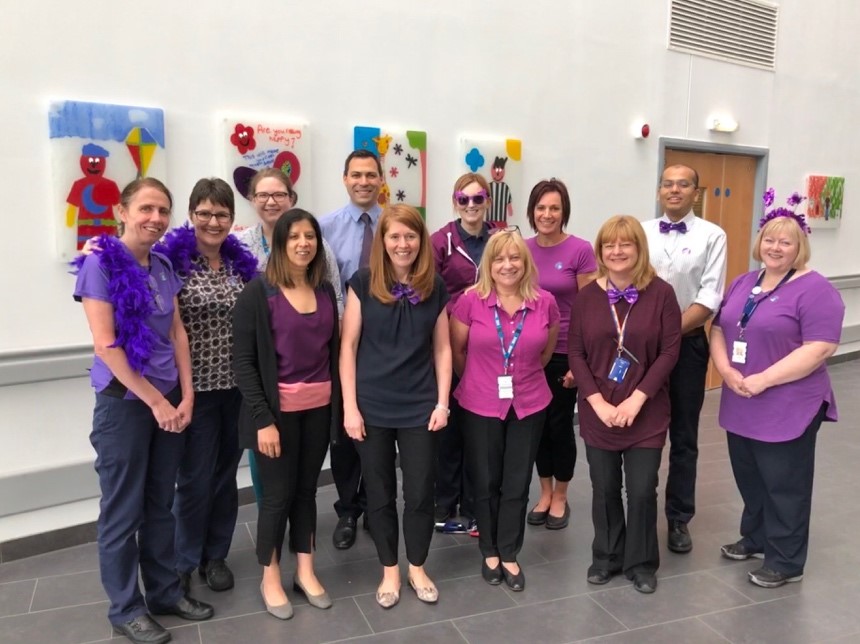Rheumatology - muscle and joint pain
What is Paediatric Rheumatology?
Paediatric Rheumatology teams care for children and young people with conditions affecting the bones, muscles and/or joints. These conditions range from biomechanical pains or complex regional pain syndromes to juvenile idiopathic arthritis or complex multi-system inflammatory disorders.
The Paediatric Rheumatology team at the Great North Children’s Hospital cares for children and young people with rheumatological diagnoses living across the North-East and North Cumbria. Each member of the team brings different skills and the team work together closely to ensure that children are seen by the right person at the right time.

Who do we care for?
The Paediatric Rheumatology team in Newcastle cares for children and adolescents with known or suspected rheumatologic diseases, including autoimmune and autoinflammatory disorders. Some of these conditions include:
- Juvenile idiopathic arthritis
- Uveitis
- Juvenile dermatomyositis
- Juvenile systemic lupus erythematosus (jSLE)
- Scleroderma
Our Paediatric Rheumatology team works closely with the Paediatric Musculoskeletal Matters team to raise awareness about musculoskeletal conditions, provide essential knowledge and highlight the importance of early diagnosis and right care.
Patient information
The Paediatric Rheumatology team offers a wide range of different clinics. The links below will take you to patient information leaflets explaining how our team works and giving a little more information about some of the more common rheumatological diagnoses.
Adolescent and young adult care
Children and young people with long-term conditions move from children’s to adult healthcare services between the ages of 16 and 18 years. Our Adolescent Rheumatology service helps young people with paediatric rheumatology diagnoses to prepare for adult life and the move to adult healthcare services. This is often called transitional care.
As part of adolescent care, we encourage young people to think about healthy lifestyles and good mental health.
Medicines information
Children and young people with inflammatory paediatric rheumatology conditions may be treated with immunosuppressive medications. The links on the medications sheet provide information about some of the more common immunosuppressive medications used in Paediatric Rheumatology.
Information about charities
There are a number of Paediatric Rheumatology charities across the UK who work hard to support clinical care with written information, patient forums and patient activities. The links below will take you to the webpages of some of the charities we work with:

CCAA – CCAA KIDS WITH ARTHRITIS.
New diagnosis information, local support groups, family support weekends, award badges, useful resources

OVER THE WALL – Free residential camps for serious illness and disabilities and their families. Online camps too, all free!

Versus Arthritis – Information on conditions, medications and support

JAR – Parent led charity, family support, information leaflets, mental health support, school information and resources

Teapot Trust – Art Therapy, self-referrals encouraged, done online with art therapist.

JIA – Support for living with JIA and families, friends and carers. Articles to read, news and support information
Research information
Paediatric Rheumatology is a rapidly developing specialty and the team in Newcastle have a wide range of clinical, educational and academic interests, leading and contributing to a range of collaborative research studies and clinical trials with the aim of improving quality of life and clinical care for children and young people with rheumatological conditions.
The leaflet below contains information on current and future rheumatology research studies taking place across the United Kingdom (UK). For updates or additions to this leaflet, please email csgconsumers@outlook.com.
Only brief summaries are provided, and not all inclusion and exclusion criteria are listed. If you or your child are interested in any of these research studies, please speak to your rheumatology team.




